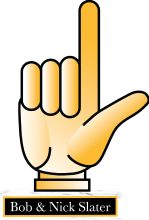Michael: How many times did I ask you to put me back on a litigation team? How many times?
Marty: Anyone can go to court. What makes that so special?
Michael: I was good at it.
Marty: Wonderful. So are a lot of people. At this, what you do, you’re great. For chrissakes Michael, you got something everybody wants. You have a niche. You made a place. You made a niche for yourself….”
Discussion between Managing Partner Marty Bach and Michael Clayton, in movie, Michael Clayton
Paul Krugman and other mainstream economists now admit they got it wrong – they failed to see that globalization would have a devastating impact on American manufacturing and jobs. Their message that free trade is good for everyone in all places and times has given way to the realization that economists pushed efficiency at the expense of social welfare, and according to Michael Hirsh, “subsumed the interests of Americans as producers to Americans as consumers, trading well-paying jobs for low-cost electronics.” How do you avoid becoming a victim of globalization, and build the career of your dreams?
You find your career niche. Finding a niche starts where you can thrive starts with some self-knowledge. Pay attention and, over time, identify your natural abilities and strongest skills. Ask yourself, “What are my best skills — the ones upon which I’ll build my career?” Determine what you’re naturally good at now and what, if nurtured, you might become great at. Something that, ideally, cannot be outsourced overseas or performed by a robot.
Almost always this potentially great skill is something you enjoy doing and that comes easier for you than for others. Often, it’s an ability that others — family members, teachers, coaches, supervisors, peers — have affirmed. Perhaps it is public speaking, or teaching, or leading teams, or being good with numbers and grasping difficult financial concepts. Maybe it’s selling. Maybe it’s writing. Whatever it is, when people tell you how good you are at something, listen to them. If their observations align with your perception of your strengths, look for new and imaginative ways to apply them in your work.
We all have weaknesses that we must shore up as best we can to perform our job. But it’s almost impossible to turn weaknesses into strengths. If you’re not good with numbers, you may with work become competent, but it’s unlikely you’ll ever be strong enough to compete with those who are naturally good at numbers, much less differentiate yourself from them. Being “good” at something is not a formula for career success. As Marty observed, “Wonderful. So are lots of people.” Almost everyone is “good” at something. If you want to differentiate yourself, you need to be “great.” Focus on your strengths, and spend your time and energy building your strengths into your differentiators. Take what you are naturally exceptional at, and work to become even more exceptional.
Try to apply more of what you do best to your current job and, as you progress, try to move within your organization to a team and a role that is a natural fit, one where the skills required are your best skills, and where you get to do more of what you do best. Perhaps you can see a need and fill it. When a different role for which you’re well suited becomes available, convince others you’re the right person for it. Or identify a role that is needed but doesn’t yet exist and sell both the role and your fit for it. Perhaps the role is unappreciated or represents an opportunity that others don’t seem to want. Claim it or create it. “We need it and I’m the one to start it.” Then work hard to exceed expectations. You may discover that this area of opportunity requires your best strengths and that you come to love what you do.
As a young professional, it is unlikely you have found your career niche yet. Don’t be discouraged, but do be aware that it’s time to start searching for it. To find your niche you may have to move laterally, or even downward for a time. Think of your path not as a corporate ladder that only goes up or down, but as a jungle gym where lots of paths lead to your desired destination. It may be wise to move sideways or serve a stint in another office (including abroad) if doing so allows you to showcase your best skills, broaden your network, develop a deeper understanding of the business, and perhaps even prepare for leadership. Once you’ve identified your niche, revise your personal learning plan to further develop your natural gifts and skills.
Prove what you can do, then consider your next step when opportunities — perhaps of your own creation — become available. Keep showing up, doing your job, learning, and growing. When others see what you can do, the possibilities for your next step may expand. Given natural attrition (people being promoted or self-selecting out), new doors will likely open for you in the next year or two. Your path may lead somewhere more satisfying than you ever could have imagined.
So, two takeaways from this week’s blog: First, if you haven’t seen Michael Clayton, go check it out. Second, and more importantly: When you love what you do and are grateful for the opportunity to do it, you’ll know you’ve found your career niche.
Look Out Above! The Young Professional’s Guide to Success has been featured in the Chicago Tribune, HR Digest, CBS News, and more. It is available for purchase on Amazon, or by contacting the authors directly for discounted bulk orders.


